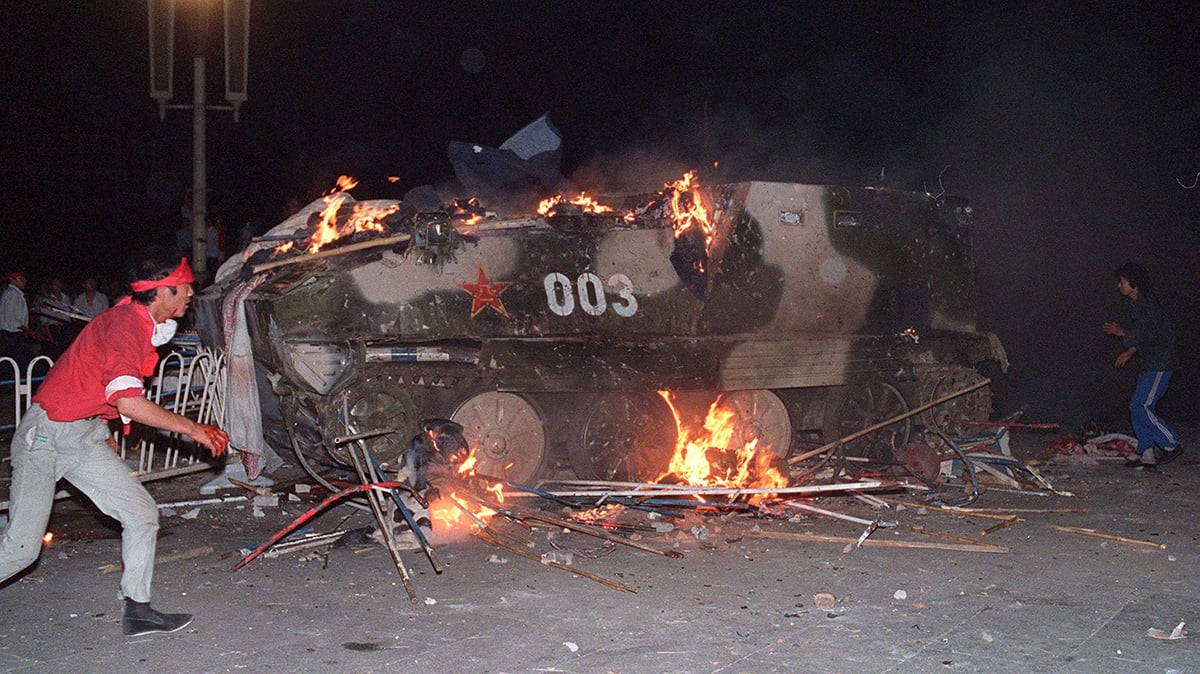On May 18, the Sri Lankan military declared victory in its 26-year civil war against the Liberation Tigers of Tamil Eelam.
|
The Sri Lankan military strategy was simple: an all-out scorched earth campaign with complete disregard for the lives of civilian women, children and men.
Since the beginning of May alone, more than 400 civilians have been killed and more than 1,000 have been wounded. At least 7,000 civilians were killed in the final months of fighting, according to private U.N. documents. The official death toll since the start of the conflict is currently estimated at 80,000.
Following a helicopter tour of the affected areas, U.N. Secretary General Ban Ki-moon said civilians caught in the crossfire must have experienced the “most inhumane suffering.” (Associated Press May 23)
The Tamil diaspora has responded to the brutal military offensive with increasing protests.
In Toronto, Canada, 10,000 protesters took to the streets in a single day in January. A week-long demonstration in April forced police to repeatedly shut down traffic in some of the busiest areas of the city. On May 13, 12,000 protesters marched through the city chanting, “Stop the genocide!”
Banusha Pathmanathan, a Tamil student in Toronto, said stories of rape, bombings and uses of chemical weapons were being suppressed by the Sri Lankan government. “If the Tamil Tigers are really responsible then why are they asking the media and aid workers into the safety zone?” she asked. (Toronto Social Justice Magazine, May 17)
London police said 2,000 Tamils protested May 18 outside the British Parliament. Another 200 protesters marched to the U.S. Embassy in Grosvenor Square the same day. (Reuters, May 18)
Prior to the LTTE’s confirmation of Prabhakaran’s death, Tamils and their supporters expressed disbelief that their leader had been killed. Members of Tamil communities around the world have repeatedly asserted that the liberation struggle has not come to an end.
Indra Poopalapillai, 34, accused the Sri Lankan government of telling lies. “The Tamil Tigers were not finished,” he shouted emotionally, adding: “They are coming back again.” (Reuters, May 18)
“It’s going to continue,” said Sri Lankan-born Jey Moorthy, 23. “We are not going to leave it like this.”
Though the government offensive may have dealt a severe blow to Tamil liberation, the so-called victory of the Sri Lankan military leaves the fundamental contradictions of the conflict unresolved. The Tamil people continue to be an oppressed nationality within Sri Lanka.
Roughly 200,000 Tamil civilians are currently detained in Manik Farm, the largest displacement camp in Sri Lanka. The Sri Lankan government has already declared that the “state of emergency” will continue, reserving the right to arrest and detain civilians at will. The devastation wrought by war will have lasting impact.
The escalation of the Sri Lankan government’s offensive has sharply intensified the national oppression that has shaped and fueled the fight for Tamil liberation. Though the form of the struggle may change, the struggle itself will continue.
“The military defeat of our struggle is just the beginning of another phase in our struggle for a Tamil Eelam,” said Canadian Tamil Congress leader David Poopalapillai. (The Times of India, May 23)
Legitimate self-determination for the Tamil people is the only solution to the conflict. Repression breeds resistance. The Tamil struggle for self-determination will continue until justice prevails.





